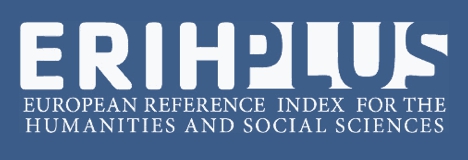TEACHING GEOGRAPHY THROUGH THE UNIVERSAL DESIGN OF LEARNING AT FEDERAL INSTITUTE OF PIAUÍ, CAMPUS ANGICAL
Abstract
When discussing Geography education today, especially in the pandemic context in which we live, we cannot help but think about school inclusion. This article aims to analyze the teaching of geography from the use of the Universal Learning Design (DUA) with students with intellectual disabilities presenting teaching practices. For this, a qualitative, descriptive approach was used as a methodology, which made use of documentary and bibliographic research. The activities as well as the student's interactions and impressions were recorded in a class diary. In order to research Geography education from the perspective of school inclusion, the DUA was used as a guiding inclusive strategy, as it brings the possibility of making the curriculum more flexible, providing a variety of options, based on the application of its principles and guidelines, for teaching everyone. The research showed that the DUA has a lot to contribute to school inclusion and inclusive geographic education, presenting an encouraging result regarding the schooling of a student with intellectual disabilities, being possible its application in other situations of disability both in the teaching of Geography, as in other subjects.
References
CAVALCANTI, Lana de Souza. Ensino de Geografia e Diversidade: construção de conhecimentos geográficos escolares e atribuição de significados pelos diversos sujeitos do processo de ensino. São Paulo: Contexto, 2005.
CHTENA, Natascha. Teaching Tips For an UDL-Friendly Classroom: Advice for implementing strategies based on Universal Design for Learning. 2016. Disponível em: https://www.insidehighered.com/ blogs/gradhacker/teaching-tips-udl-friendly-classroom. Acesso em: 14 jan. 2020.
CUSTÓDIO, Gabriela Alexandre; RÉGIS, Tamara de Castro. Recursos didáticos no processo de inclusão educacional nas aulas de Geografia. In: NOGUEIRA, Ruthe Emilia (org.). Geografia e inclusão escolar: teoria e práticas: Florianópolis: Edições do Bosque / CFH / UFSC, 2016. p. 258-279.
FONSECA, Ricardo Lopes. SALVI, Rosana Figueiredo. TORRES, Eloiza Cristiane. A adequação curricular da geografia escolar para a educação especial. [S.l.], [S.d.].
FREITAS. Reinaldo de. Ensino de Geografia e Educação Inclusiva: estratégias e concepções. Revista Urutágua, Maringá, n. 14, dez./jan./fev./mar. 2008.
HEREDERO, Eladio Sebastián. Diretrizes para o Desenho Universal para a Aprendizagem (DUA). Rev. Bras. Ed. Esp., Bauru, v. 26, n. 4, p. 733-768, out./dez. 2020.
LAKATOS, Eva Maria; MARCONI, Marina de Andrade. Fundamentos metodologia científica. 4. ed. São Paulo: Atlas, 2001.
MINAYO, Maria Cecília de Souza. Ciência, técnica e arte: o desafio da pesquisa social. In: MINAYO, Maria Cecília de Souza (org.). Pesquisa Social: Teoria, Método e Criatividade. Petrópolis: Vozes, 1995. p. 9-29.
MARQUES, Jardel Delgado. Um olhar sobre o currículo inclusivo para além dos aspectos burocráticos. Revista Educação Pública, v. 20, nº 21, 9 de junho de 2020.
NUNES, Clarisse.; MADUREIRA, Isabel. Desenho Universal para a Aprendizagem: Construindo práticas pedagógicas inclusivas, Da Investigação às Práticas, Lisboa, v.5, n. 2, p. 126-143. 2015.
PLETSCH, Márcia Denise. SOUZA, Flávia Faissal de. ORLEANS, Luis Fernando. A diferenciação curricular e o desenho universal na aprendizagem como princípios para a inclusão escolar. Revista Educação e Cultura Contemporânea, Rio de Janeiro, v. 14, n. 35, 2017.
PRODANOV, Cleber Cristiano; FREITAS, Ernani Cesar. Metodologia do trabalho científico [recurso eletrônico]: métodos e técnicas da pesquisa e do trabalho acadêmico. 2. ed. Novo Hamburgo: Feevale, 2013.
QUEIROZ, Danielle Teixeira; VALL, Janaina; SOUZA, Ângela Maria Alves e; VIEIRA, Neiva Francenely Cunha. Observação Participante na Pesquisa Qualitativa: conceitos e aplicações na área da Saúde. R. Enferm UERJ, Rio de Janeiro, v. 15, n. 2, p. 276-83, abr./jun. 2007.
RAMOS, Ana. Carolina.; MARTINS, Rosa Elisabete Militiz Wypyczynsky. O ensino de geografia na perspectiva da educação inclusiva. Geosaberes, Fortaleza, v. 8, n. 15, p. 120-130, mai./ago. 2017.
RIBEIRO, Roberto Souza; MONTENEGRO, Silvio Marcio. A Geografia da inclusão ou a inclusão da geografia. In: NOGUEIRA, Ruthe Emilia (org.). Geografia e inclusão escolar: teoria e práticas: Florianópolis: Edições do Bosque / CFH / UFSC, 2016. p. 153-175.
ROSE, David.; MEYER, Anne. Teaching every student in the digital age. 2002. Disponível em: http://www.cast.org/teachingeverystudent/ideas/tes/. Acesso em: 07 mar. 2020.
SELLTIZ, Claire et al. Métodos de pesquisa das relações sociais. São Paulo: HERDER: Editora da Universidade de Sao Paulo, 1965.
SILVA, Gabrielle Lenz da. CAMARGO, Síglia Pimentel Höher. Estratégias do Desenho Universal para a Aprendizagem para uma educação inclusiva. In: Congresso Internacional de Educação Inclusiva, 4., 2020. Paraíba Anais [...], Paraíba, 2020.
TRIVIÑOS, Augusto Nibalbo Silva. Introdução à pesquisa em ciências sociais: a pesquisa qualitativa em educação. São Paulo: Atlas, 1987.
ZABALZA, Miguel A. Diários de aula: um instrumento de pesquisa e desenvolvimento profissional. Porto Alegre: Mediação, 2004.
ZERBATO, Ana Paula; MENDES, Enicéia Gomes. Desenho universal para a aprendizagem como estratégia de inclusão escolar. Educação Unisinos, v. 22, n. 2, p. 147-155, abr./jun. 2018. Disponível em: http://www.movimentodown.org.br/wp-content/uploads/2
015/08/Manual-FINAL-bibliografia.pdf. Acesso em: 07 mar. 2020.

This work is licensed under a Creative Commons Attribution-NonCommercial 4.0 International License.
Policy Proposal for Free Access Journals
Authors who publish in this journal agree to the following terms:
a. Authors retain the copyright and grant the journal the right of first publication, with the work simultaneously licensed under the Creative Commons Attribution License which allows the sharing of the work with acknowledgment of the authorship of the work and initial publication in this journal.
b. Authors are authorized to take additional contracts separately, for non-exclusive distribution of the version of the work published in this journal (eg publish in institutional repository or as a book chapter), with acknowledgment of authorship and initial publication in this journal.
c. Authors are allowed and encouraged to publish and distribute their work online (eg in institutional repositories or on their personal page) at any point before or during the editorial process, as this can generate productive changes, as well as increase the impact and The citation of published work (See The Effect of Free Access).





















